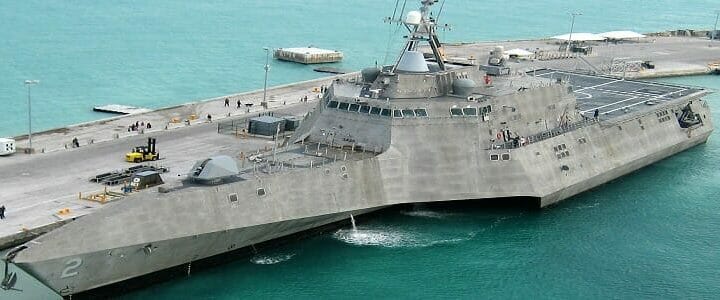Once again, China has mounted a physical security probe of Naval Air Station Key West (NAS), this time at the Sigsbee Annex portion of the NAS.
On January 4, two Chinese nationals, Yuhao Wang and Jielun Zhang, both students at the University of Michigan, were arrested after a 30-minute ride-about and photography of the NAS.
At approximately 8:30 AM the two approached the restricted access entrance to the NAS and were asked for military identification by the sentry on duty. Unable to provide any, the two were instructed to make a u-turn and depart the area. Instead, they drove onto the base and away from the sentry’s position.
The sentry, unable to depart her post, called for assistance and after 30 minutes the two were found on the NAS and their drive-about stopped. This M.O. is exactly the same used in the recent Chinese reconnaissance incursion into NAS Oceana in Virginia, where two Chinese diplomats/intel officers were stopped at the sentry post, instructed to depart and instead drove onto the NAS taking photos of the buildings and facilities.
When Zhang and Wang were ultimately detained, they were found to have smart phones and a Nikon camera. Having obtained consent from the individuals, the U.S. Navy security team reviewed the devices’ content and discovered multiple photographs of the NAS military structures on Sigsbee Annex, including those located on Fleming Key.
During their FBI interview the duo acknowledged having ignored the gate sentry’s instructions provided by the military sentry at the gate. They did not provide an explanation on why the chose to ignore her instructions.
The two will be charged with violating Title 18 USC 1382 and 795 entering a military property and taking photographs. It is anticipated that they too will be remanded pending trial as their situation is nearly identical to that of Liao.
China previously probed NAS Key West in December 2019 when Lyuyou Liao was arrested and charged with taking photos of the base’s Truman Annex. Liao continues to be held in custody awaiting his trial, as he was considered a flight risk given his presence in the United States was via a Chinese government funded scholarship.
In September 2019, Zhao Qianli, also a Chinese national student, probed the NAS. He pleaded guilty and was sentenced to one year in prison.




